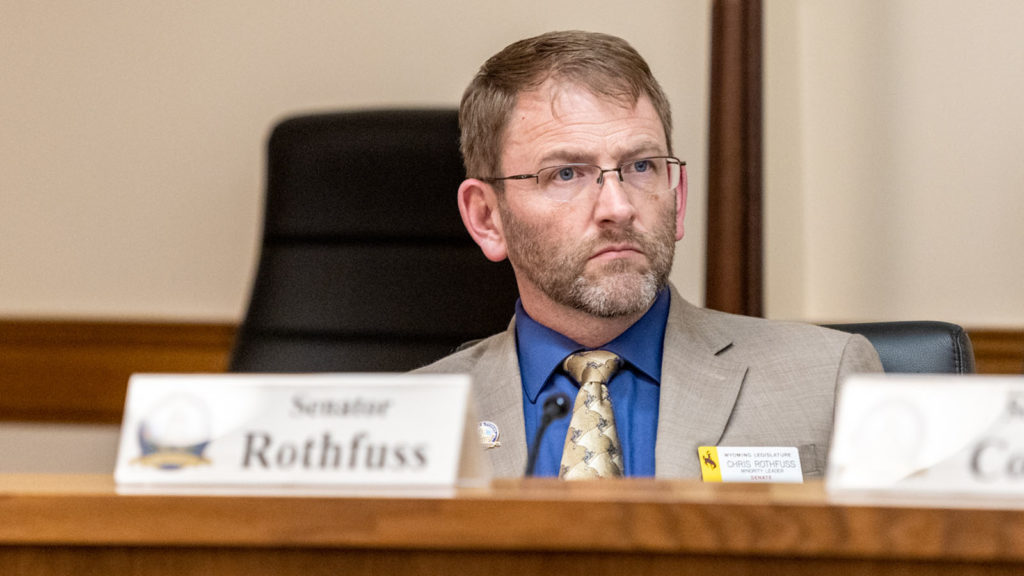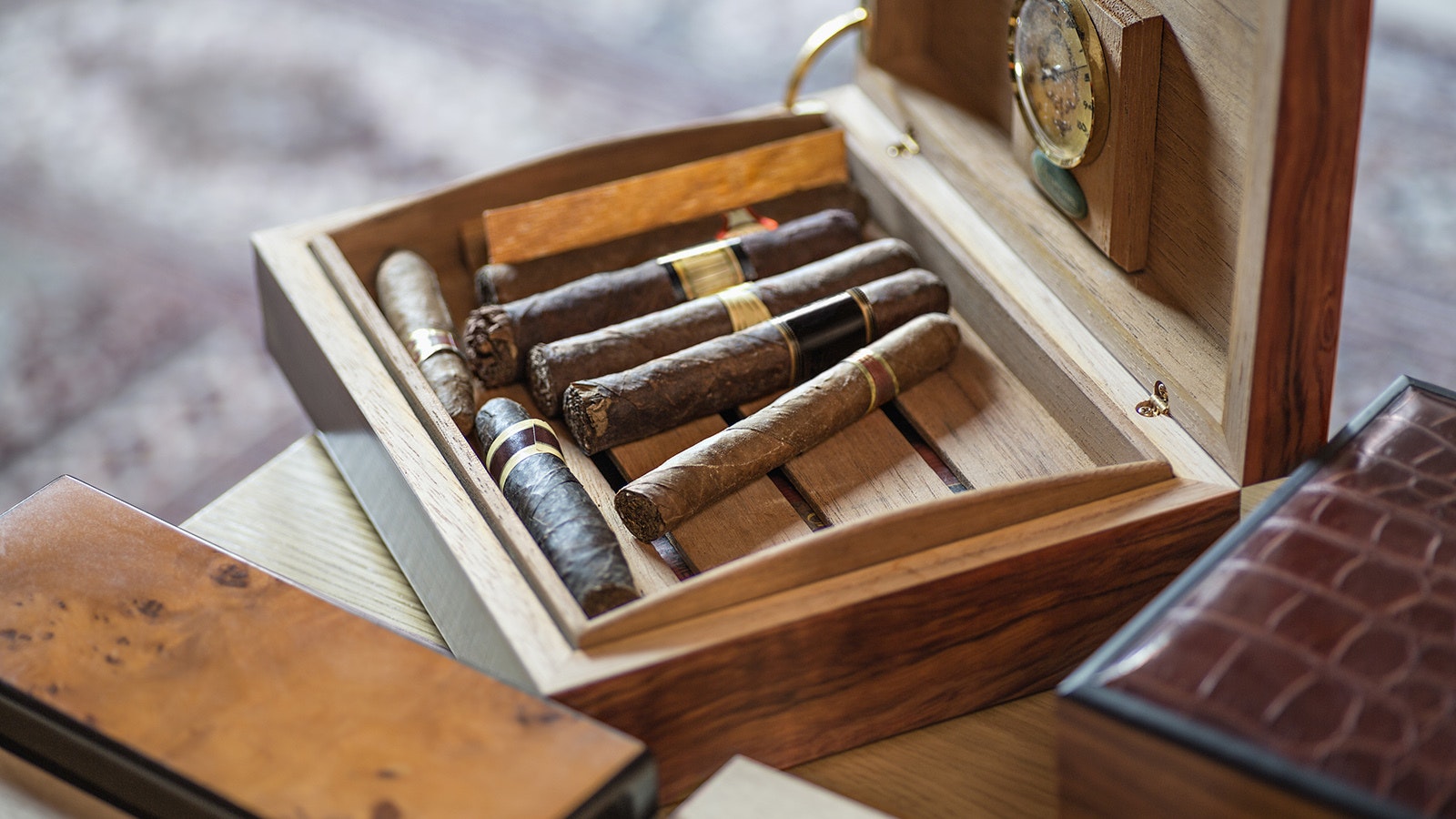Cigars in Wyoming are taxed at 20% of wholesale cost at the time of purchase, a rule the state’s premium cigar industry says has created an uneven playing field.
Customers who buy cigars from a convenience or discount store pay for a product with taxes measured in pennies, while premium cigar shop customers pay for a product whose taxes are measured in dollars.
Senate File 42 seeks to cap the tax on cigars to no more than 30 cents, to help level the playing field for small businesses that sell premium cigars.
Donovan Short, owner of Casper Cigar Co., told lawmakers on the Senate Revenue Committee last week that mom-and-pop shops like his carry a “large and different burden” because of the way cigars are handled in the Cowboy State.
“The fairness issue is not just for retailers,” he told the committee. “I think it’s for consumers as well.”
Paying so much more in taxes for a cigar at one store versus another is confusing to customers who don’t understand why one cigar tax is hundreds of times more than another.
Unusual Burden
Short often goes to trade shows and conventions where he may order products that can take several months to get shipped to him.
After the premium product arrives, it could take another “six months, nine months, a year or more to sell,” he said.
The taxes are a cost-prohibitive, up-front bet on something that may not even sell at all. And there are times when a product spoils before it can be sold, he said.
In either case, the same tax is due, with no discount for the misfortune.
“This is one of those things that really hits the premium segment a lot differently than everybody else,” he said. “So, we appreciate very much all the consideration.”
How Other Tobacco Products Are Taxed
Wyoming has four categories for taxing tobacco products.
In one bucket, there are cigarettes, which are a flat 60 cents per pack, regardless of the brand’s overall price.
Moist snuff, meanwhile, in a different bucket gets taxed by weight — 60 cents per ounce. That’s true regardless of how expensive the brand is.
Electronic cigarettes have their own bucket, too.
Then there’s a bucket for everything else — a hodgepodge that includes dry snuff, twist tobacco, tobacco for pipes, and cigars.
During discussion of these tobacco categories, lawmakers on the Senate Revenue Committee noted the complexity, and expressed a desire to simplify that.
Ultimately, however, they agreed that was a discussion for another bill and another day.
Just Call It A Cigar
The inequities highlighted by SF 42 are not limited to the Cowboy State. Other states have passed legislation to address similar issues.
Wyoming’s law is based on a North Carolina law, which includes the word “premium.”
But Wyoming lawmakers didn’t like singling out cigars as premium, preferring instead to delete the word from the bill altogether.
Advocates of the bill said they were fine with that, believing that SF 42 can still accomplish its aims without highlighting or defining a premium cigar category.
Against The Bill
Not everyone was for the cigar bill during the Senate Revenue Committee hearing.
Representatives of the American Heart Association and American Cancer Society each cited statistics about the ill effects of smoking on health and suggested it does not make sense for lawmakers to reduce taxes on a product that costs consumers upward of $30 million in annual health care costs.
While a cigar industry representative suggested research shows cigars are less harmful than other tobacco products, American Heart Association representative Liz Albers vehemently disagreed.
“Studies have shown that cigar smokers do inhale, thereby absorbing smoke into their lungs and bloodstream and depositing smoke particles in their lungs, as well as their stomachs and digestive tract,” she said. “Furthermore, all cigar smokers, whether or not they inhale, expose their lips, tongue and throat to smoke, and it’s toxic, cancer-causing agents.”
Cigar smoke and cigarette smoke are chemically the same, Albers added.
“Cigar smoke is composed of the same toxic and carcinogenic components found in cigarette smoke,” she said. “And each year, approximately 9,000 Americans die prematurely from regular cigar use.”
The bill advanced out of the Senate Revenue Committee unanimously, despite these objections.

Constitutional Question
During deliberation of the legislation on the Senate Floor on Monday, Sen. Chris Rothfuss, D-Laramie, offered an amendment that would remove the 30-cent cap, suggesting there is a constitutionality issue.
Wyoming requires all revenue-raising matters to start in the House rather than the Senate, he said.
But the premium cigar bill doesn’t raise any revenue, countered Sen. Bob Ide, R-Casper. In fact, the fiscal note attached to the bill estimates the cigar tax cap will reduce revenues by $181,000.
Sen. Stephen Pappas, R-Cheyenne, meanwhile, urged defeat of Rothfuss’ amendment for the sake of fairness.
“We don’t tax the other tobacco products on the basis of quality or price,” he said. “We tax them on a unit.”
Every cigar should be 30 cents, he said.
“It’s a bill that will encourage our mom-and-pop cigar stores to have more ability to compete with the big boys,” he said. “And so, it’s a small jobs bill, really, for me.”
Don’t Gut The Bill
“If it’s unconstitutional for this body to cut taxes, why, you’re never going to see a tax cut ever,” said Sen. Bo Biteman, R-Ranchester.
Taking away the cap, meanwhile, guts the bill’s intent.
“One thing we wanted to do on the Revenue Committee, and it’s a goal of ours, is to look at these discrepancies in our tax code where certain classes or similar products are treated one way and others are treated the other way,” he said. “This cap, this 30-cent cap, is important to level the playing field.”
The fairness argument also appealed to Sen. Anthony Bouchard, R-Cheyenne.
“The power to tax is the power to kill the industry,” he said. “And that’s what we have to look at here. What we’re doing here is putting a cap on this, so it is taxed equally, the same as other tobacco products.”
Rothfus Responds
Attorneys in the past have interpreted some bills that decreased revenue as still part of the revenue-raising umbrella, Rothfus suggested.
And even without the cap, SF 42 still includes moving the tax due date to the point of sale. He had understood that as an important aspect of the legislation.
A majority of the Senate, however, went with the fairness argument, voting his amendment down.
That sends the bill ahead, for a third and final reading, without any additional amendments.





